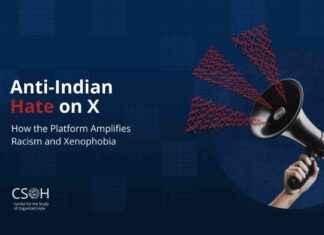Several EU politicians were arrested on Friday and Saturday. Most prominent is Eva Kaili, Greek politician and Vice-President of the European Parliament. The Belgian authorities found “bags full of cash” on her, which is said to have come from Qatar. Kaili and other politician colleagues are in custody. On Monday, the President of the European Parliament wants to discuss with the parliamentary groups whether Kaili should finally be deposed. And the press comments, as is customary in such cases. An overview:
“Augsburger Allgemeine”: “The scandal surrounding EU Parliament Vice President Eva Kaili is shaking political Brussels. If the suspicion is confirmed, this not only means an immense loss of confidence for the MPs of all parties. It would be a catastrophe for the entire EU. As the guardian of Western values and the heart of European democracy, Parliament likes to emphasize the importance of human rights and the rule of law. Europe’s representatives like to play the role of moral mace wielders, especially in the fight against corruption. Often enough they have reason to do so. But the sharpest weapon becomes blunt when there was now ‘gang corruption and money laundering’ in your own shop.”
“Badische Zeitung”: “The European Parliament must now lift the immunity of the suspects immediately and thus ensure that the allegations of corruption against MPs can be cleared up from within their own ranks. (…) The governments of Hungary and Poland, who have been castigated by the European Parliament for violations of the rule of law, are sniffing Now morning air. They don’t want to be pilloried by MPs who can’t keep their own house in order. This is a much bigger problem for the EU than the unclean PR methods of the Gulf emirate that have now been unearthed. ( …) Up until now, Parliament has been the admonishing moral authority. It’s missing now.”
“Frankenpost”: “The scandal is a warning shot for all parliaments – also for the German Bundestag, in which more lobbyists have an ID card than the parliament has members. It is one of the achievements of democracy that the elected representatives of the people can make their decisions freely . If they lose this ability – whether through political pressure, financial influence or threats of violence – democracy is in jeopardy.”
“Süddeutsche Zeitung”: “It could not have been worse for the EU Parliament. After all, its most powerful weapon is morality: the House of Representatives recently celebrated its 70th birthday, proud of its role as the only EU institution which is elected directly by the European people. But it is still not allowed to introduce its own laws; it is often ignored by the Commission and the member states in the current crisis situation. The Parliament is all the more convinced in its role as the guardian of true European values. These values also represents the house when it comes to grievances outside the EU – for example in a resolution that condemned the football World Cup in Qatar as a disgrace.And now you suddenly have a hunch why some social democrats were not so enthusiastic about this resolution .”
“Handelsblatt”: “The EU Parliament sees itself as a pioneer against bribery and corruptibility. For years, MEPs have been demanding that the Union take action against kleptocrats in their own ranks – especially against Hungary’s Prime Minister Viktor Orban, who undermines the rule of law and cultivates favoritism “Now, of all times, when the Commission is finally taking action and is not paying out funds from the EU budget and the Corona recovery fund to Hungary due to a lack of rule of law standards, the corruption case is shaking Brussels. Orban will find it easy to portray his critics as hypocrites. It could become a big one Become a beneficiary of the affair. That must not happen. (…) Although the transparency rules are already strict today, there are gaps in contacts with third countries that need to be closed. The proposal to set up an independent EU ethics committee must also be implemented quickly will.”
“Stuttgarter Nachrichten”: “The worst prejudices about allegedly rapacious politicians and democratic institutions that are remote from the people and degenerating into self-service shops seem to be confirmed. This corruption scandal will further fuel people’s disenchantment with politics. The objection that the disclosure of the probable bribe payments to the Vice President of the European House of Representatives by the police is proof that the control mechanisms are working. Above all, the scandal is a warning shot for all parliaments. This also applies to the German Bundestag, where more lobbyists have house ID cards than parliament has members.”
“Frankfurter Allgemeine Zeitung”: “Why should Qatar bribe a vice-president who hardly anyone outside of her Greek homeland knows and who nobody ever thought of as a center of power in Brussels? (…) It seems as if the emirate on the Gulf took parliament more seriously than the EU citizens he represents themselves.(…) The majority of MEPs should turn their outrage into energy in order to now close a gap in the transparency regime of the EU institutions: Interest representatives from third countries must also Transparency registers are recorded. However, one should not delude oneself. Such a reform would not have prevented a clumsy case of bribery like the one now apparently uncovered – and the battered reputation of Parliament will not be improved that easily either.”
“OM-Medien”: “The question inevitably arises as to whether Qatar can be a good trading partner and is really the lesser evil compared to Russia, as Economics Minister Robert Habeck euphemistically said after the conclusion of the deal on the supply of liquid gas with the emirate This view urgently needs to be corrected after the Brussels parliamentary scandal broke. Even if it is bitter: Germany should not do business with corrupt sheikhs.”










